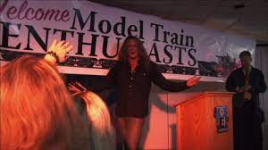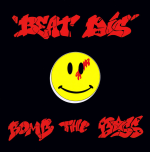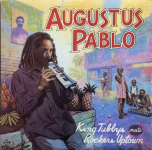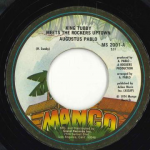apologies in advance for a drunk and convoluted post:
in 1987, for two weeks, there was number one hit in the UK ( and the Netherlands, Italy, Canada, New Zealand, Zimbabwe, and US Billboard's "Hot Club Play")
in other words, it was a big tune, worldwide
M|A|R|R|S – Pump Up The Volume ( 1987 )
a failed collaboration between Colourbox and A.R. Kane which ignited a row over the use of samples, instigated by Pete Waterman
wikipedia notes:
Pete Waterman is the premier music biz personality who rules the model railway scene ( I have witnessed this myself on a recent visit to Chester Cathedral where there was a model railway exhibit which expressed many thanks to him for his support ), who is maybe only rivalled by Rod Stewart with
his impressive model railway scenic representation of a "US City"
View attachment 13688
Rod Stewart's Model Railway
View attachment 13690
or, if
Trailer Park Boys can believed then Sebastian Bach of Skid Row may also be a contender for Model Railway Champion of the music scene
Sebastian Bach - Model railway Champion ( Trailer Park Boys )
but putting model railways aside, Pete Waterman is also the man responsible for Lee Perry's worst single - although what do i know? It was a hit and made money , but I've never been able to listen to this to the end:
Susan Cadogan - Hurts So Good ( 1975 )
apparently Lee Perry didn't want to do the tune, but he wanted the weed...
anyway, back to M|A|R|R|S... their single softened up the UK public for 'ardcore, along with Bomb The Bass's
View attachment 13691
acid house smiley faced 1987 UK number 2 hit single
Bomb The Bass - Beat Dis ( 1987 )
and S'Express's 1988 hit
Theme from S'Express
S'Express - The Trip ( Microdot House Mix ) ( 1988 ) ( my favourite mix of Theme From S'Express, it's on the B-side of the 12" )
( maybe marks a moment where the former Blitz kids and WAG club crew abandoned new romantic and embraced acid house )
anyway, what I'm getting at is that M|A|R|R|S, Bomb The Bass, and S'Express laid the ground for the MAINSTREAM to be receptive to acid, house, and techno - this is the UK in 1987, one year before the "second summer of love", a year when the underground warehouse parties were still playing rare groove
as mentioned above M|A|R|R|S was really Colourbox, who released an amazing 12 " ( Shotgun ) in 1983
Colourbox - Shotgun ( 1983 )
and then a very disappointing and mediocre LP in 1985, but the following year they redeemed themselves with this single:
Colourbox Featuring Lorita Grahame – Baby I Love You So ( 1986 )
which just happens to be a cover of the seminal reggae classic:
Jacob Miller - Baby I Love You So ( 1986 )
the version of which is the title track of the dub album which features in many top ten lists;
View attachment 13694
Augustus Pablo - King Tubby's Meets Rockers Uptown ( 1976 )
and which, in an attempt to get back on track, was versioned by Joe Gibbs :
Joe Gibbs - Chapter Three ( 1977 )
which was a tune that was played at Dave Mancuso's legendary NYC Loft parties, attended by Larry Levan and Frankie Knuckles, which brings us back to the JA -> NYC -> Chicago - > Detroit nexus absorbed by the UK and ultimately resulting in RAVE
so, in conclusion, reggae roots of techno, house, and UK 'ardcore was Jacob Miller voiced by Augustus Pablo in 1975...
edit - discogs says 1975, but a check of the label says 1974:
View attachment 13695





